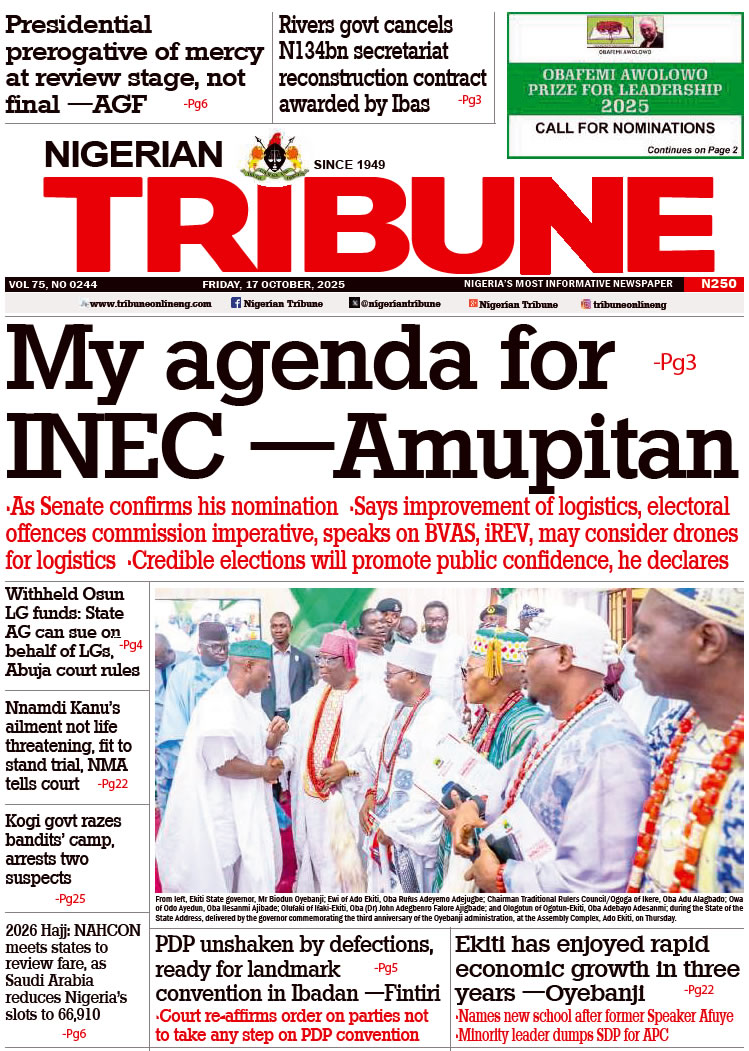The Academic Staff Union of Universities (ASUU) has frowned at what it describes as the Federal Government of Nigeria’s lack of regard for tertiary education, as reflected in the way it treats the welfare and conditions of service of intellectuals in public universities.
The ASUU Chairman, University of Ibadan Chapter, Dr Adefemi Afolabi, stated this on Thursday while featuring on “Situation Room”, a radio programme in Ibadan, Oyo State.
However, the Union said it would not abandon the fight to secure decent welfare and conditions of service for its members, while also ensuring the Federal Government’s commitment to adequate funding for the revitalisation of public universities in the interest of the children of the masses.
ASUU had commenced a two-week warning strike on Monday to protest the failure of the Federal Government to sign the renegotiated draft agreement reached with the Yayale Ahmed Committee set up by the Tinubu-led administration to renegotiate with the Union.
The Committee, ASUU said, concluded its sittings over eight months ago.
Dr Afolabi noted that the Federal Government had taken ASUU for granted for over eight months, adding that the Union, though reluctant to embark on the warning strike, was compelled to do so by the Federal Government’s delay tactics and its disregard for the principle of collective bargaining.
The ASUU boss stated that the Union waited for eight months and organised protests to sensitise Nigerians on the need for the government to sign the draft renegotiated agreement with the committee headed by Alhaji Yayale Ahmed, only for the government to set up a new committee to start the engagement afresh.
This, according to the Union, is a waste of time and resources, and an indication that “the government is only interested in wasting our time and not ready to resolve the welfare and conditions of service of lecturers.”
Dr Afolabi drew attention to the wave of resignations by high-profile professors in Nigeria’s public universities as they relocate abroad in search of greener pastures for themselves and their families.
Apart from professors’ resignations, Dr Afolabi lamented that young lecturers who were recently employed are also resigning, having been dismayed by the salaries and conditions of service when they were paid.
He said: “We don’t work in an ideal environment. How do you reward your intellectuals with so little and still expect them to be happy and continue to work?
“Our strike is based on a lack of trust in this Federal Government because their approach is not different from previous ones.
“You do not want to strike, but government policies disrupt the livelihoods and survival of lecturers amid galloping inflation. How can you not trust your own committees, yet set up another committee to review what the last committee did, and then establish another expanded committee to meet with the Union again?
“Now the situation is terrible. Lecturers are finding it difficult to come to the office due to the high cost of transportation. Those who come cannot concentrate due to many unmet needs.
“Now, professors are voluntarily resigning and relocating abroad, while first-class graduates do not even show interest in lecturing, let alone applying for the job.
“These events have consequences for the future of university education in Nigeria.”
ALSO READ TOP STORIES FROM NIGERIAN TRIBUNE
WATCH TOP VIDEOS FROM NIGERIAN TRIBUNE TV
- Relationship Hangout: Public vs Private Proposals – Which Truly Wins in Love?
- “No” Is a Complete Sentence: Why You Should Stop Feeling Guilty
- Relationship Hangout: Friendship Talk 2025 – How to Be a Good Friend & Big Questions on Friendship
- Police Overpower Armed Robbers in Ibadan After Fierce Struggle






